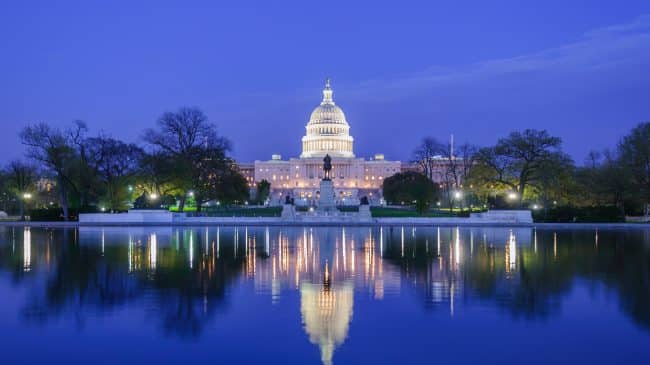America’s metastasizing administrative state often draws ire from free-marketers for the drag it places on economic growth and dynamism.
But a new report suggests the functionaries of the administrative state aren’t just dampening the productive power of the economy, but systemically undermining the rule of law, issuing major regulations in direct violation of the Constitution.
Analysis conducted by the Pacific Legal Foundation highlights the widespread practice of mid- to low-level bureaucrats issuing rules when they are not authorized to do so.
Under the Appointments Clause, officials in the executive branch who exercise significant authority must be nominated by the president and confirmed by the Senate. This process is not an embarrassing anachronism; it’s intended to ensure accountability to the people’s representatives.
Forty-three years ago, the Supreme Court established that rulemaking could only be exercised by democratically accountable officers. That’s the theory.
But in practice, government officials have been violating the appointments clause on a massive scale. Examining the Department for Health and Human Services, the Pacific Legal Foundation found 71% of its rules issued from 2001 through 2017 were unconstitutional. The biggest violator by a country mile was the Food and Drug Administration with 98% of their rules issued being unconstitutional.
These rules are not minor technocratic details, but regulations that will shape and possibly destroy some of America’s most important industries.
One such regulation was the so-called Deeming Rule introduced in 2016. The Deeming Rule requires e-cigarette manufacturers to file massive applications for every single product they sell. The cost of this regulation, according to the FDA, is $466,000 for each product application. Small companies with extensive product lines cannot hope to comply with these applications, the guidance for which was published only a few weeks ago. Not only that, but e-cigarette makers are forbidden from making factually correct claims about their products without prior government approval, a gross violation of the First Amendment.
When all is said and done the Deeming Rule will wipe out most of the e-cigarette industry, leaving only a handful of companies standing, the majority of whom are traditional cigarette makers.
The Pacific Legal Foundation highlights two such stories from Kimberly Manor and Steve Green, who both own vape shops. They are legally prevented from informing their customers that e-cigarettes are safer than cigarettes and that vaping may help them quit smoking. Both these claims are recognized as accurate by numerous public health officials and bodies.
Kimberly and Steve have helped hundreds of people quit smoking and brought jobs to their community. But thanks to the Deeming Rule, businesses such as these are being destroyed. The public is kept in the dark about lifesaving products all based on a rule issued by someone who had no authority to do so.
Whether one agrees or disagrees with the specifics of each particular regulation, it is vital that they are issued in line with the Constitution.
The Trump administration has demonstrated an admirable commitment to regulatory reform, but there is scope to go further. The president himself has the authority to demand his senior appointees are personally accountable for the regulations their agencies are issuing.
There will be an understandable alarm if thousands of these regulations are abolished haphazardly due to their unconstitutional status. But rules need not be swept away with total chaos and uncertainty.
The Pacific Legal Foundation argues rules issued unconstitutionally should be struck down only when individually challenged and then reissued in a constitutional manner going through the necessary processes whether it be notice-and-comment rulemaking or cost-benefit analysis. Agencies would be free to devise interim arrangements in the meantime.
This would be challenging and no doubt frustrating for public servants who often have a thankless and challenging task. But public service is not synonymous with ruling the public, and good intentions are no substitute for accountability.
Thankfully, some in Congress are taking notice. Sen. Ron Johnson, R-Wisconsin, welcomed and endorsed the Pacific Legal Foundation’s report, and Sen. Rand Paul, R-Kentucky, chaired hearings on Wednesday to investigate the problem.
Hopefully, more of our legislators and officials in the executive branch will recognize that restoring accountability to the administrative state is not an inconvenience to be mitigated, but an opportunity to reinforce one of the foundations of sound republican government.
This column was first published in the Washington Examiner.

